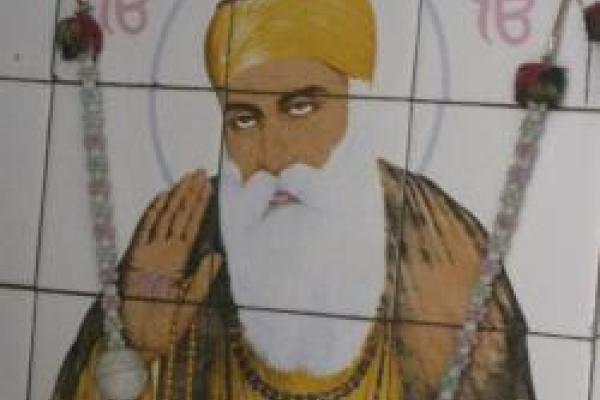
"Religion Beyond the Iconic: Exploring the Shared Ownership of Baba/Guru Nanak."
This paper will explore the multiple ownership of Nanak through an exploration of sites, practices and identities. The religious boundaries which have been erected around his symbol have come to connote identities and categories which I will highlight as ‘shared difference’ within the heteropraxy that surrounds the veneration of Nanak. This sense of shared difference is evoked at sites such as Nankana Sahib, the birthplace of Nanak now in Pakistan and at the shrine which marks the place of his death in Narowal/Kartarpur also in contemporary Pakistan. However, while these sites show heteropraxic obeisance, the identities of Nanakpanthi, Sikh, Sindhi, and Sufi also go beyond any notion of syncretism or hybridity (S. Ramey 2008). While Nanak is considered the founder of the Sikh ‘religion,’ he also occupies a central position within Nanakpanthi/Sindhi and Sufi community histories which transcend Sikh, Hindu and other formal categories of difference. Drawing on extensive fieldwork conducted in Punjab across Pakistan and India over two and a half years, the paper will explore how these on-going and sustaining notions of multiple ownership call for an exploration of the figure of Nanak through sites, practices and expressions of identity, which should not be limited to the lens of theology or to panthic traditions but further require attention to lived traditions, beliefs, and practices in order to trace how iconic identities are projected alongside the sustaining circulation of multiple ownership.
Navtej Purewal, Deputy Director of the South Asia Institute at the School of Oriental and African Studies (SOAS) at the University of London.
Free and open to the public.
A recording of this talk is available upon request. Please email religion@osu.edu to request a copy.
